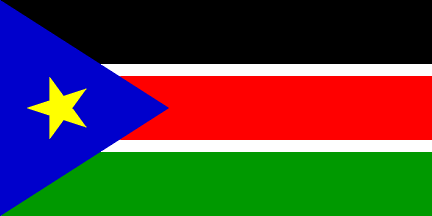 Southern Sudan Party Quits Government
Southern Sudan Party Quits Government
Thursday October 11, 2007
By ALFRED de MONTESQUIOU
Associated Press Writer
JUBA, Sudan (AP) - Southern Sudan's former rebels on Thursday suspended participation in the central government, accusing it of failing to abide by a peace deal in a dispute that threatens a rare success in the troubled nation.
U.S. officials and other international observers have warned that a 2005 peace agreement between Sudan's north and south was in danger of unraveling, threatening a new civil war that could also dash hopes for ending a separate conflict in western Darfur.
The Sudan People's Liberation Movement said it was withdrawing its 18 Cabinet ministers, including the foreign minister and the vice president, and three advisers.
Pagan Amum, the party secretary-general, said the decision was not intended to renew conflict but to push for better implementation of the 2005 Comprehensive Peace Agreement.
``We are working to avoid a return to war,'' he told The Associated Press. ``We want to make sure the CPA is implemented rather than dishonored.''
The People's Liberation Movement accuses the Khartoum government of multiple breaches of the peace deal, including not sharing oil wealth, failing to pull troops out of the south, and remilitarizing contested border zones where the main oil reserves are located.
The 2005 agreement ended two decades of civil war between the Arab and Muslim-dominated north and the mainly Christian and animist black southerners. The war, Africa's bloodiest conflict, left some 2 million people dead in fighting, related disease or famine.
Amum urged the U.N. Security Council to meet to examine the peace deal's problems. ``These aren't delays, these are flagrant violations,'' he said.
There was no comment from the government in Khartoum, which seemed to have been caught by surprise by the decision.
Sudan has been dominated by a small elite of northern Arab tribes since its independence from Britain in 1956.
The U.N.- and U.S.-brokered agreement that ended the southern civil war was a diplomatic victory and fueled hopes that the Darfur conflict could be resolved.
But the 4-year-old crisis in Darfur has only worsened between government forces and ethnic African rebels. The government is accused of unleashing Arab militias, known as the janjaweed, blamed for atrocities against ethnic African villagers. More than 200,000 people have died and 2.5 million have been driven from their homes in Darfur.
In the latest violence, Arab militias attacked the rebel-held town of Muhajeria this week. The U.N. said part of the town was burned and its 20,000 inhabitants had fled; the rebels have claimed at least 48 people were killed.
Clashes between rebel and government forces were also reported in other parts of Darfur, prompting aid and U.N. workers to pull out of those areas. The U.S. Embassy said it was temporarily withdrawing its staff from Darfur for security reasons.
The U.S. Embassy said it was aware of the southerners' decision to pull out from the government and said it continued to support the unity of Sudan.
Andrew Natsios, the White House's special envoy to Sudan, said during a visit to Sudan last week that he was ``deeply concerned with the health'' of the 2005 agreement and warned, ``the risk of a clash is high.''
The Khartoum government led by President Omar al-Bashir has rejected a border drawn by an international commission, and both sides have reportedly massed fighters along the contested region.
Foreign Ministry spokesman Ali Sadiq refused to comment on the southerners' decision except to say that the ministry's two deputies would take charge. Both are northern Arabs and members of the ruling National Congress Party.
Khartoum's hard-line Arab elite has ``its own power system,'' Amum said. Without the balance of the former southern rebels, ``They will go back to their old ways, which is the way of dictatorship,'' he said.
Al-Bashir's government came to power in a military and Islamist coup in 1989, and there have been no elections since.
















No comments:
Post a Comment